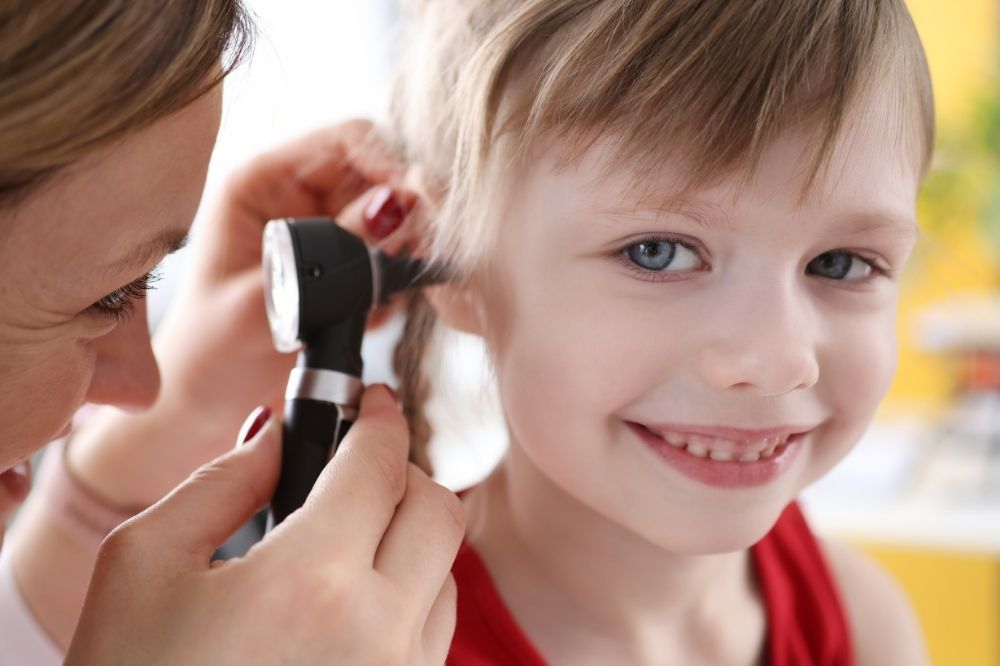In many Houston homes, life moves to the rhythm of voices—morning chatter, shared stories, and weekend music. But sometimes, that rhythm starts to feel off. Maybe a loved one seems quieter at the dinner table or misses the punchline in a joke. It doesn’t happen overnight, but gradually, things begin to change.
Hearing problems often creep in slowly. And if no one steps in early, they tend to stick around and get worse. That’s where family support can make all the difference.
Let’s look at why early treatment matters—and how families can be the reason someone gets their listening back and their life with it.
The Impact of Untreated Hearing Problems
Auditory loss affects more than just the ears. It influences moods, memory, and even how someone connects with people. Children may fall behind in school. Adults might avoid social events. Seniors can start feeling cut off from the world. Common signs include:
- Trouble understanding words, especially in noisy places
- Needing the TV volume turned way up
- Frequently asking others to repeat themselves
- Pulling back from conversations
These signs might seem small, but they can quickly grow into something much more serious if left alone.
The Family’s Role in Early Intervention
Most people don’t notice their own auditory fading. It’s often the family who sees it first. Maybe it’s your child struggling to follow instructions. Or your partner asking you to speak up constantly. Perhaps a parent who keeps missing pieces of every conversation.
It might feel tricky to bring it up. No one wants to sound like they’re pointing fingers. But with the right approach, it doesn’t have to feel that way. Start simple. Choose a calm moment and ask something gentle like, “Have you noticed it’s harder to hear lately?” Let them talk and be patient.
Sometimes, just knowing someone else noticed—and cares—makes it easier to take that next step. Offer to help find a clinic. Suggest going with them. Sit with them during the appointment if they want. This kind of support is powerful. It says, “You’re not going through this alone.”
Benefits of Early Detection and Treatment
The earlier someone gets help, the better their outcome. That’s true for most health issues, and it absolutely applies to hearing loss. Kids who hear better can learn well. Adults can stay sharp at work and home. Seniors stay active and connected instead of feeling isolated
And here’s where things get even more encouraging: today’s hearing aids in Houston aren’t what people imagine. They’re small, almost invisible, and designed to fit daily life. Many come with smart features—like connecting to a phone or streaming TV sound directly into the ear. They’re comfortable, easy to wear, and built to adapt to different settings. From quiet dinners to noisy family gatherings, they adjust automatically, helping people feel part of the moment again.
Plus, there’s something else many people don’t realize: untreated auditory loss has been linked to memory problems and mental fatigue. Giving the brain what it needs—sound, speech, interaction—keeps it working better for longer. And when treatment starts early, people have more time to adjust, feel confident, and take back control.
Breaking the Stigma Around Aids and Loss
Despite the benefits, some people still hesitate. That hesitation can come from fear, embarrassment, or simply a lack of information. Here are common barriers—and ways families can help overcome them:
- Denial or fear of stigma: Help normalize hearing loss. Compare these aids to glasses—both help with senses and improve daily life.
- Financial concerns: Research affordable options. Some clinics offer flexible payment plans or accept various insurance policies.
- Lack of awareness: Share simple facts. Let them know that the earlier the loss is treated, the easier it is to adjust and thrive.
Auditory care is more accessible than ever—it just takes the first step.
What Families Can Do Today
Not sure where to start? These simple steps can help:
- Pay attention to changes in how your loved one listens or responds
- Start a conversation that feels kind, not critical
- Look up trusted local providers together
- Offer to make the appointment—or go along for support
- Keep encouraging them after the appointment, too
Even small moments of support can make a huge difference. And remember: the goal isn’t to fix everything overnight. It’s to show that you’re on their team.
Concluding It All Together
Hearing loss doesn’t make a big entrance. It sneaks in—and slowly takes away moments that matter. But with early care and real support, families can help bring those moments back.
Better hearing opens the door to stronger conversations, more laughter, and deeper connections. And all it takes to begin? One caring voice willing to notice, speak up, and help a loved one hear life fully again.

